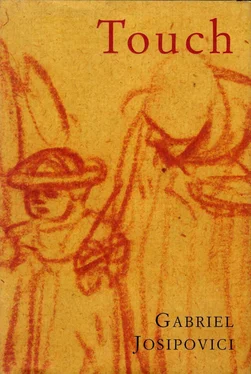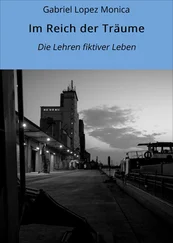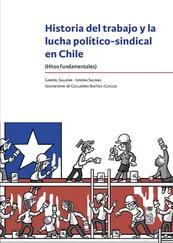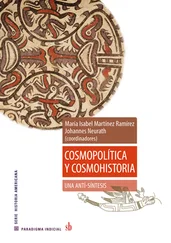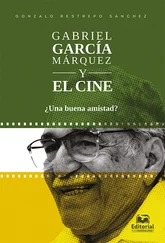Gabriel Josipovici - Touch
Здесь есть возможность читать онлайн «Gabriel Josipovici - Touch» весь текст электронной книги совершенно бесплатно (целиком полную версию без сокращений). В некоторых случаях можно слушать аудио, скачать через торрент в формате fb2 и присутствует краткое содержание. Год выпуска: 1996, ISBN: 1996, Издательство: Yale University Press, Жанр: Современная проза, на английском языке. Описание произведения, (предисловие) а так же отзывы посетителей доступны на портале библиотеки ЛибКат.
- Название:Touch
- Автор:
- Издательство:Yale University Press
- Жанр:
- Год:1996
- ISBN:0300066902
- Рейтинг книги:5 / 5. Голосов: 1
-
Избранное:Добавить в избранное
- Отзывы:
-
Ваша оценка:
- 100
- 1
- 2
- 3
- 4
- 5
Touch: краткое содержание, описание и аннотация
Предлагаем к чтению аннотацию, описание, краткое содержание или предисловие (зависит от того, что написал сам автор книги «Touch»). Если вы не нашли необходимую информацию о книге — напишите в комментариях, мы постараемся отыскать её.
Touch — читать онлайн бесплатно полную книгу (весь текст) целиком
Ниже представлен текст книги, разбитый по страницам. Система сохранения места последней прочитанной страницы, позволяет с удобством читать онлайн бесплатно книгу «Touch», без необходимости каждый раз заново искать на чём Вы остановились. Поставьте закладку, и сможете в любой момент перейти на страницу, на которой закончили чтение.
Интервал:
Закладка:
It's as simple as that. Were I to give up I would of course be able to go on carrying out the tasks I have to do. But I feel I would do them like an automaton. And the deprivation I experience when the need for a cigarette comes upon me is not like the sense of the simple absence from my diet of food I like or even need. It is more like being in solitary confinement. To smoke a cigarette has much in common, for me at any rate, with going for a walk: when I put a cigarette in my mouth and light up, my body, which, until then had grown dead, unresponsive, begins to come to life again and I feel myself to be once more a part of the world.
They say that the famous advert, ‘You're never alone with a Strand’, killed that particular brand of cigarette stone dead. One must never, it seems, associate a product with solitude. That may be advertising wisdom, but I have never come across a truer description of what smoking means. To take out a cigarette, put it in one's mouth, light it, inhale, exhale, is to feel the deprivation of solitude dropping away. To smoke a cigarette is like sitting by an open fire, which is as much as to say that to smoke an ersatz cigarette, one of those nicotine-free monstrosities designed to wean you from the habit, is like trying to sit down to relax in front of a gas or electric fire, perhaps one of those unspeakable contraptions that pretend to be a coal or wood fire.
Since I cannot imagine a life without cigarettes it is clear that, however much I may try to give up, day by day, I will not be able to do so. Only if I could actually want a life without cigarettes would I be able to give up. But what I want is a life without the unpleasant consequences of smoking, and that is quite a different matter. Auden has some interesting things to say on the whole subject in his notes to New Year Letter . Glossing the line ‘Hell is the being of the lie’, he says:
It is possible that the gates of Hell are always standing wide open. The lost are perfectly free to leave whenever they like, but to do so would mean admitting that the gates were open, that is, that there was another life outside. This they cannot admit, not because they have any pleasure in their present existence, but because the life outside would be different, and, if they admitted its existence, they would have to lead it. They know this. They know that they are free to leave and they know why they do not. This knowledge is the flame of Hell.
This suggests that if we want to find the fullest anatomy of addiction yet compiled we need to turn not to a medical textbook but to Dante's Inferno . Here the damned cling to their past lives as in those lives they clung to themselves. In the upper reaches of the cone of Hell they go endlessly round and round, buffeted by winds or with fire raining down upon them; in the lower circles they grow more and more immobile until, almost at the centre, they are frozen into the ice so that even their tears can no longer flow. In Hell the basic premise is adumbrated by Virgil early on: ‘sanza speme vivemo in disio' — ‘without hope we live in longing’. In Purgatory, on the other hand, though the going may, especially on the lower slopes, be exceedingly hard, the pilgrims live always in the hope that one day they will reach the top of the mountain and thence be released into Paradise. The adjective ‘green’, descriptive of the new shoot, and the verb ‘to turn’, implying spiritual as well as mental suppleness, are the key words in the canticle of Purgatory, for those who were supple enough in spirit to turn to God in repentance before their death, to admit, in Auden's words, that there is another life outside, now find themselves able to move from one level of the mountain to the next, shedding as they do so the burden of their guilt, returning to their true selves.
Tornare is linked in Dante's poem not only to verde but also to amove : love is what makes the world go round, quite literally, as well as what makes the movement of Dante's verse possible. Those in Hell who refuse love are unable to turn (the Hebrew word for repentance is teshuvah — turning) in their lives, and now in eternity they remain locked in their various circles and in the bed of torment that is their own bodies.
Canto five of the Inferno , so often taken as a classic account of the nature of romantic love, whether condemned or admired by Dante, can also be seen as a profound exploration of the nature of addiction. Its abiding power stems from the fact that we cannot simply pity and condescend to the two lovers, Paolo and Francesca, but have to recognise that they present us with a pure and extreme version of what we have probably all experienced at one time or another: the power over us of desire, the craving never to leave the side of the beloved, even the painful sweetness of letting the rest of the world go hang so long as one can cling to the being one loves.
Since one characteristic of addicts is their ability and perhaps even need to talk about and justify themselves, it is natural that those in Hell make the longest speeches. Francesca's, in this canto, is one of the longest. Dante and Virgil have entered a place ‘mute of all light’, where ‘the hellish hurricane, never resting, sweeps along the spirits with its rapine; whirling and smiting, it torments them … hither, thither, downward, upward, it drives them. No hope of less pain, not to say of rest, ever comforts them.’ Dante notices ‘two that go together and seem to be so light upon the wind’, and asks Virgil if he may pause and speak to them. As they come past he addresses them graciously and asks them to converse with him. At once Francesca complies, recounting their story with a mixture of poetic elaboration, dignity and self-pity that is hard to resist:
Siede la terra dove nata fui
su la marina dove'l Po discende
per aver pace co'seguaci sui.
Amor, ch'al cor gentil ratto s'apprende,
prese costui de la belle persona
che mi fu tolta; e'l modo ancor m'offende.
Amor, ch'a nulla amato amar perdona,
mi prese del costui piacer sì forte,
che, come vedi, ancor non m'abbandona.
Amor condusse noi ad una morte.
Caina attende chi a vita ci spense.
(97–107)
She was born, she says, where the river Po descends ‘to be at peace with its followers’. That natural peace is clearly something she warms to and longs for, and in the next few lines, each terzina introduced by the powerful word amor , she almost manages to leave the impression that she has attained it. Love, here, is almost a god, Amor, who has taken her over. (La Pia, in canto three of Paradiso , will speak of having surrendered herself to the Christian God, ‘who draws our wills to what He wills; and in His will is our peace’ (84–5) — a passage Dante obviously means us to compare and contrast with this one.) This god, she tells Dante, ‘absolves no loved one from loving’, and it is he who ‘brought us to one death’. The oneness is clearly the fulfilment of a profound desire, but how are we to understand the sentence as a whole? Is she blaming or praising the god for what he has done to them? Does she know herself? Is she not in effect allowing an extreme indulgence of the will to pass itself off as a necessity, as a total absence of will or choice? After all, her beautiful and melancholy words make no mention of the actions and decisions which must have been taken by the two lovers, and pass over the fact that she was married to Paolo's brother who, finding them together, killed them both. It is he who has been hurled into the circle of Cain for his deed, but she is too fastidious to spell this out or to admit that it is their own adultery that has brought them here, where Dante finds them — come vedi (as you see).
Читать дальшеИнтервал:
Закладка:
Похожие книги на «Touch»
Представляем Вашему вниманию похожие книги на «Touch» списком для выбора. Мы отобрали схожую по названию и смыслу литературу в надежде предоставить читателям больше вариантов отыскать новые, интересные, ещё непрочитанные произведения.
Обсуждение, отзывы о книге «Touch» и просто собственные мнения читателей. Оставьте ваши комментарии, напишите, что Вы думаете о произведении, его смысле или главных героях. Укажите что конкретно понравилось, а что нет, и почему Вы так считаете.
